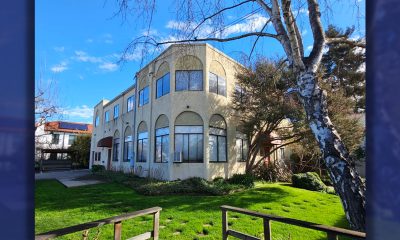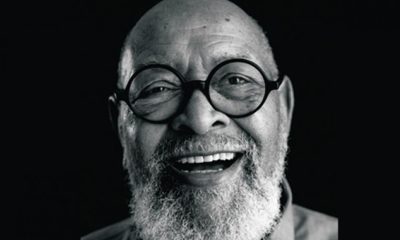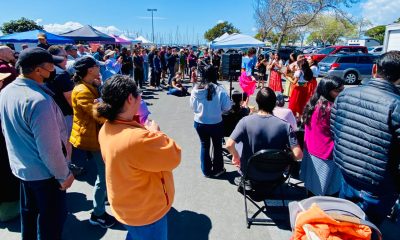City Government
Opinion: AB-280, the Mandela Act, Can Bring an End to Prolonged Solitary Confinement
AB-280 was conceived as a direct response to the suffering endured by men, women, individuals with mental health conditions, the disabled and even children who have been subjected to solitary confinement for days, years, and even decades.
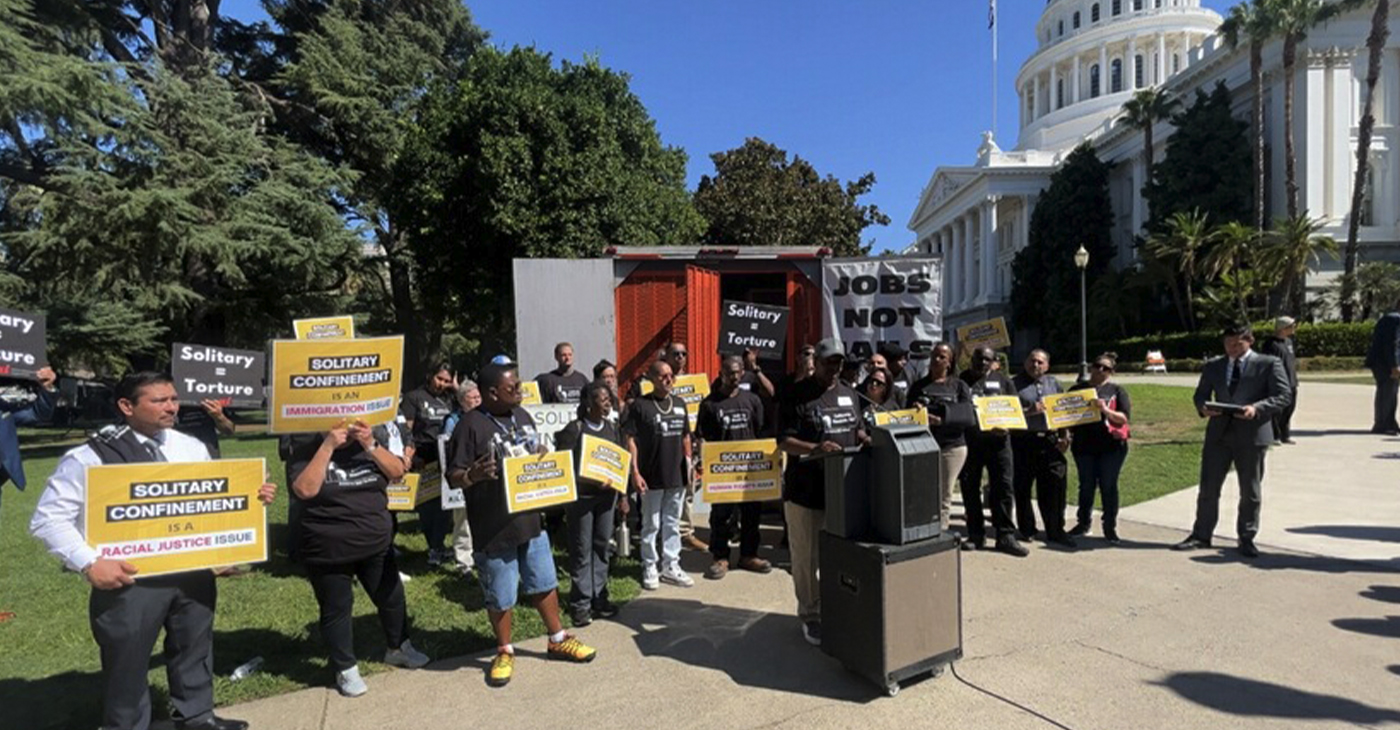
By Richard Johnson
At the California State Capitol on Sept. 6, I had the privilege to advocate for AB-280, the Mandela Act, a bill aimed at putting an end to prolonged solitary confinement.
The following day, I actively participated in the “Day of Action” rally and spoke at the press conference organized by the California Mandela Coalition at California State Capital Park in Sacramento.
During my speech, I shed light on the torture and trauma of enduring solitary confinement for two decades and underscored the critical importance of passing AB-280 Mandela Act.
AB-280 was conceived as a direct response to the suffering endured by men, women, individuals with mental health conditions, the disabled and even children who have been subjected to solitary confinement for days, years, and even decades.
For those unfamiliar with the horrors of solitary confinement, it entails living in a cramped space, without windows but continuous lighting, and enduring extreme temperatures, whether excessively hot or cold.
Sometimes individuals are allowed to leave their cells for as little as 30 to 90 minutes, or sometimes not at all. It is misguided to assume that such conditions do not have a profound and detrimental impact, as prisons invariably reflect broader societal issues. I can speak to this from my own firsthand experiences which spanned years.
Being a youthful offender held in solitary confinement with nothing but one’s thoughts for solace is a daunting and challenging ordeal. The politics of prison life place everyone, both inside and outside, in constant jeopardy.
The United Nations has explicitly stated that any duration exceeding 15 days in solitary confinement constitutes cruel and unusual punishment. Given this fact, one must contemplate the implications of subjecting individuals to decades of such severe treatment, regardless of the circumstances that led them to prison or solitary confinement.
Punishment then becomes torture, a blatant violation of human rights, civil rights, and, most importantly, the moral principles that deem such treatment inhumane and wrong.
Regrettably, for some, life has been reduced to the ‘politrixs’ (manipulations of politics), where the treatment of one another is dictated by those in positions of power.
It is incumbent upon us, the people, to champion a movement against cruel and unusual punishment, which amounts to torture, and make it a central focus for change and resolution.
While one person may not be able to single-handedly alter the course, a united movement undoubtedly can. It is imperative that we stand up for humanity across all strata of society, rather than allowing past progress to become mere footnotes in history.
The courts, particularly the Ninth Circuit Court of Appeals, have, to a large extent, failed to recognize solitary confinement as torture, thereby giving tacit approval to treating individuals as less than human.
This court ruling has paved the way for further abuse within prisons. Therefore, it is crucial that citizens urge their state representatives to implore Gov. Gavin Newsom not to veto AB-280, a bill that unambiguously defines solitary confinement and elucidates its importance as a cornerstone in how we treat everyone, whether in society or confinement.
We must set aside politics and prioritize respect for human decency, and respect for life and the treatment of fellow human beings.
With elections on the horizon, time is of the essence. We must act now before it is too late. Change is inevitable, but it is imperative that we advocate for the right kind of change.
To ignore or show apathy toward this issue would be a grave mistake, as the future hinges on the actions we take today, recognizing that tomorrow is never guaranteed.
Let our state representatives know that we are resolute about fostering change and that we cannot allow this bill to be relegated to the annals of history. Yes, we may have been knocked down, but we are not knocked out or defeated.
Activism
Oakland Post: Week of May 8 – 14, 2024
The printed Weekly Edition of the Oakland Post: Week of May May 8 – 14, 2024
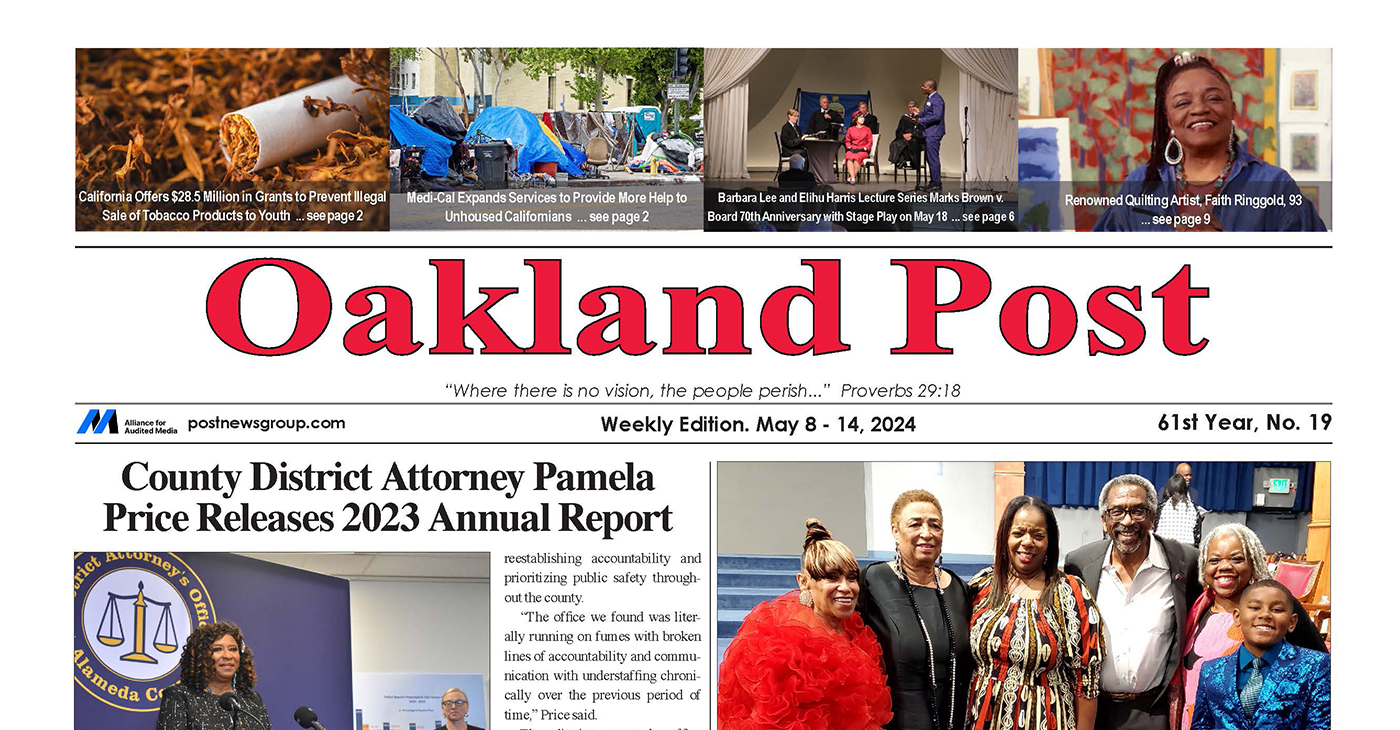
To enlarge your view of this issue, use the slider, magnifying glass icon or full page icon in the lower right corner of the browser window. ![]()
Activism
S.F. Black Leaders Rally to Protest, Discuss ‘Epidemic’ of Racial Slurs Against Black Students in SF Public School System
Parents at the meeting spoke of their children as no longer feeling safe in school because of bullying and discrimination. Parents also said that reported incidents such as racial slurs and intimidation are not dealt with to their satisfaction and feel ignored.

By Carla Thomas
San Francisco’s Third Baptist Church hosted a rally and meeting Sunday to discuss hatred toward African American students of the San Francisco Unified School District (SFUSD).
Rev. Amos C. Brown, president of the San Francisco NAACP and pastor of Third Baptist Church, along with leadership from local civil rights groups, the city’s faith-based community and Black community leadership convened at the church.
“There has been an epidemic of racial slurs and mistreatment of Black children in our public schools in the city,” said Brown. “This will not be tolerated.”
According to civil rights advocate Mattie Scott, students from elementary to high school have reported an extraordinary amount of racial slurs directed at them.
“There is a surge of overt racism in the schools, and our children should not be subjected to this,” said Scott. “Students are in school to learn, develop, and grow, not be hated on,” said Scott. “The parents of the children feel they have not received the support necessary to protect their children.”
Attendees were briefed last Friday in a meeting with SFUSD Superintendent Dr. Matt Wayne.
SFUSD states that their policies protect children and they are not at liberty to publicly discuss the issues to protect the children’s privacy.
Parents at the meeting spoke of their children as no longer feeling safe in school because of bullying and discrimination. Parents also said that reported incidents such as racial slurs and intimidation are not dealt with to their satisfaction and feel ignored.
Some parents said they have removed their students from school while other parents and community leaders called on the removal of the SFUSD superintendent, the firing of certain school principals and the need for more supportive school board members.
Community advocates discussed boycotting the schools and creating Freedom Schools led by Black leaders and educators, reassuring parents that their child’s wellbeing and education are the highest priority and youth are not to be disrupted by racism or policies that don’t support them.
Virginia Marshall, chair of the San Francisco NAACP’s education committee, offered encouragement to the parents and students in attendance while also announcing an upcoming May 14 school board meeting to demand accountability over their mistreatment.
“I’m urging anyone that cares about our students to pack the May 14 school board meeting,” said Marshall.
This resource was supported in whole or in part by funding provided by the State of California, administered by the California State Library via California Black Media as part of the Stop the Hate Program. The program is supported by partnership with California Department of Social Services and the California Commission on Asian and Pacific Islander American Affairs as part of the Stop the Hate program. To report a hate incident or hate crime and get support, go to CA vs Hate.
Bay Area
Mayor London Breed: State Awards San Francisco Over $37M for Affordable Housing
On April 30, Mayor London N. Breed announced San Francisco has been awarded more than $37.9 million in funding from the California Department of Housing and Community Development (HCD) as part of the State’s Multifamily Housing Program (MHP). The HCD loan will provide the final funding necessary for development of Casa Adelante – 1515 South Van Ness, a 168-unit affordable housing project located in San Francisco’s Mission District.

By Oakland Post Staff
On April 30, Mayor London N. Breed announced San Francisco has been awarded more than $37.9 million in funding from the California Department of Housing and Community Development (HCD) as part of the State’s Multifamily Housing Program (MHP).
The HCD loan will provide the final funding necessary for development of Casa Adelante – 1515 South Van Ness, a 168-unit affordable housing project located in San Francisco’s Mission District.
The new development at 1515 South Van Ness Ave. will provide 168 affordable homes to low-income families, formerly homeless families, and persons living with HIV earning between 25-80% of the San Francisco Area Median Income (AMI).
In addition, the project is anticipated to provide family-friendly amenities and ground floor community-serving commercial spaces that preserve the prevailing neighborhood character of the Calle 24 Latino Cultural District.
“This funding unlocks our ability to move on building affordable housing units for families in San Francisco at a crucial time. We understand the level of need for more housing that is accessible, and like the state, the city continues to face a challenging budget cycle,” said Breed. “1515 South Van Ness is a good example of what can be achieved in San Francisco when you have strong community partnerships and an unwavering commitment to deliver on critical needs for our residents.”
“From the beginning of my term as Supervisor, I have fought to bring affordable housing to 1515 South Van Ness” said Supervisor Hillary Ronen. “In the interim, the site has been utilized for homeless services and shelter, and I am thrilled that HCD has recognized the value of this development, and we are finally ready to break ground and bring 168 affordable homes to low income and formerly homeless families in the Mission.”
Owned and occupied by McMillan Electric Company until 2015, the City and County of San Francisco purchased 1515 South Van Ness Avenue in June 2019 with the intent of developing new affordable housing.
In November 2020, the San Francisco Mayor’s Office of Housing and Community Development (MOHCD) released a Multi-site Request for Qualifications (RFQ) seeking qualified developers to build affordable housing on the site, and subsequently selected Chinatown Community Development Corporation (CCDC) and Mission Economic Development Agency (MEDA) in May 2021 to develop the site.
The project is expected to begin construction in winter 2025.
“A strong, long-term push by Mission advocates to make this site 100% affordable is now paying off, with 168 family units that include services and childcare. People of color communities know what they need, and we are excited to be in partnership with a team, consisting of MEDA, CCDC, and MOHCD, that listens,” said Malcolm Yeung, Executive Director at CCDC.
“We are excited to be in partnership with CCDC, yet again, and for the opportunity to develop intergenerational affordable housing in the City’s Mission District,” said Luis Granados, executive director at MEDA.
Increasing housing affordable to lower-income and vulnerable residents is a key priority in the City’s Housing Element which calls for additional funding for affordable housing production and preservation, as well as Mayor Breed’s Housing for All Executive Directive that sets out the steps the City will take to meet the bold goal of allowing for 82,000 new homes to be built over the next eight years.
Tuesday’s funding announcement emphasizes the importance of regional and state collaboration in order to reach our housing and climate goals.
“We are thrilled—not just to bring a project of this size to a community with great need — but to do so with community-based developers and their partners who understand the neighborhood and sensitivities around cultural preservation,” said HCD Director Gustavo Velasquez.
-

 Community4 weeks ago
Community4 weeks agoFinancial Assistance Bill for Descendants of Enslaved Persons to Help Them Purchase, Own, or Maintain a Home
-

 City Government1 week ago
City Government1 week agoCourt Throws Out Law That Allowed Californians to Build Duplexes, Triplexes and RDUs on Their Properties
-

 Activism2 weeks ago
Activism2 weeks agoOakland Post: Week of April 24 – 30, 2024
-

 Business4 weeks ago
Business4 weeks agoV.P. Kamala Harris: Americans With Criminal Records Will Soon Be Eligible for SBA Loans
-

 Community4 weeks ago
Community4 weeks agoAG Bonta Says Oakland School Leaders Should Comply with State Laws to Avoid ‘Disparate Harm’ When Closing or Merging Schools
-

 Community3 weeks ago
Community3 weeks agoRichmond Nonprofit Helps Ex-Felons Get Back on Their Feet
-

 Community3 weeks ago
Community3 weeks agoOakland WNBA Player to be Inducted Into Hall of Fame
-

 Community3 weeks ago
Community3 weeks agoRPAL to Rename Technology Center for Retired Police Captain Arthur Lee Johnson

